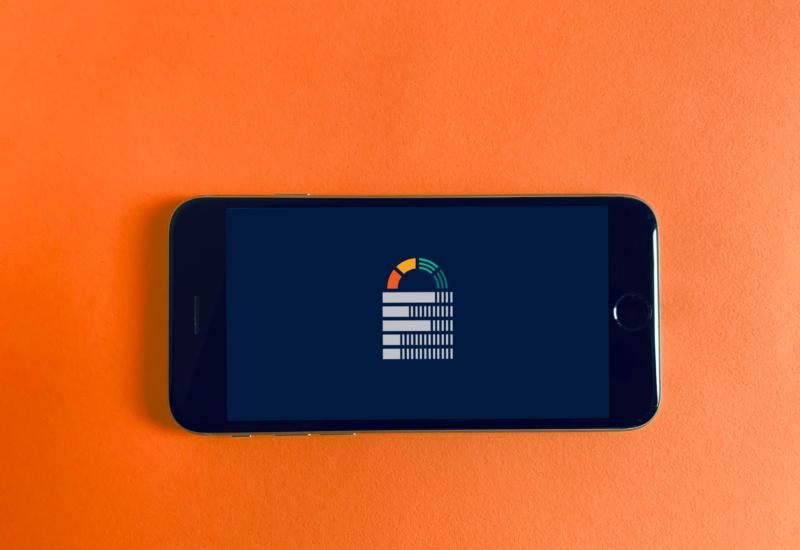Start Building Your Child’s Credit
With online activities like shopping, banking, and social media becoming deeply integrated into our daily lives, the digital age has brought unparalleled convenience. Unfortunately, it has also made personal information more vulnerable to identity thieves than ever before.
As your digital footprint grows bigger, you may wonder how to protect your identity online. The good news is there are steps you can take to safeguard your information and ensure your safety on the internet. In this guide, we’ll walk you through the best practices for protecting your identity online and the products that can give you an extra layer of security.
Dangers of Sharing Personal Information Online
While many internet platforms may give an impression of privacy, sharing personal details on social media and elsewhere online can put your identity at risk. Posting your full name, address, birth date, and family details gives scammers ammunition to impersonate you or steal your identity.
Children are especially vulnerable to online identity theft for a few reasons:
- Their personal information can sometimes be found online from sources like social media profiles, school websites, and activity registrations
- They’re more likely to click suspicious links or download unverified software
- Child identity theft often goes undetected for years, giving identity thieves sufficient time to get away with their crime
Why Should You Protect Your Identity Online?
Identity theft can have serious consequences in various aspects of your life. Here are the reasons you should protect your identity online:
| Reason | Explanation |
| Financial security | Personal data stolen online can be used to open new accounts, secure loans, or make purchases in your name. Unauthorized transactions can also occur, damaging your credit score and causing financial loss |
| Personal safety | Revealing too much personal information on the internet can put your safety at risk. Cyberstalkers may exploit this information to harass, threaten, or even cause physical harm to you |
| Preserve reputation | Your reputation can be at stake if cybercriminals misuse your identity. They may commit crimes or post inappropriate content using your identity, which can tarnish your professional life and relationships |
| Prevent work-related issues | For professionals, an identity breach can have detrimental effects on their work. Many individuals have access to sensitive company data, and if this information is exposed, it can lead to financial and reputational damage to organizations |
| Protect assets | Cybercriminals can target more than just your finances—with info found online, they can gain access to your digital assets, including photos, personal writings, or professional projects. Losing or having these assets held for ransom can be devastating, as they may be irreplaceable |
| Emotional well-being | Falling victim to online identity theft can result in stress, anxiety, and a sense of violation. Protecting your identity is crucial to avoid the emotional and psychological trauma associated with identity theft |
How To Protect Your Online Identity

In an era of increasing digital threats, protecting your online identity is vital. Here are five ways to protect your identity on the internet:
- Use secure and unique passwords
- Enable two-factor authentication
- Be wary of phishing emails and malware
- Monitor your online accounts
- Be careful what you share publicly
Use Secure and Unique Passwords
To enhance your online security, it’s important to use unique passwords. Make sure to create complex passwords that consist of at least 12 characters and include a combination of letters, numbers, and symbols. Avoid reusing the same password for multiple websites or accounts, as this would allow hackers access to all your accounts if they uncover a single password.
Enable Two-Factor Authentication
Take advantage of the option to enable two-factor authentication whenever it’s offered for social media, email, and banking accounts. This adds an extra layer of security to the login process, which helps protect your accounts from unauthorized access.
Be Wary of Phishing Emails and Malware
Phishing emails and malicious software are common ways for thieves to steal personal information. Never click on links, download attachments, or provide sensitive data in response to unsolicited messages.
Be suspicious of messages from unknown senders or those with lots of spelling and grammar mistakes, as these may be from malicious people seeking to access your sensitive information. Keep your operating system and software up to date with the latest security options to minimize vulnerabilities.
Monitor Your Online Accounts
Check your online financial accounts, email, social media, and other websites frequently for signs of unauthorized access, such as unknown charges, messages you didn’t send, or changes to your profile information. Look out for spam emails pretending to be from a legitimate company to trick you into providing account numbers or passwords. Be cautious of unsolicited phone calls, texts, or mail about your accounts as well.
Be Careful What You Share Publicly
It’s important to be cautious about what kind of details you share with the public. Sharing personal information such as addresses, birthdays, or current locations can unintentionally give cybercriminals or malicious individuals the opportunity to exploit that information. This can result in identity theft, stalking, or even physical harm.
Additionally, sharing too much information about your children not only exposes them to online predators but can also affect their future digital reputation and privacy. Every piece of information shared becomes a potential vulnerability, so it’s crucial to exercise discretion.
Products and Services To Assist With Online Identity Protection

When it comes to protecting your identity online, using specialized products and services can provide an extra layer of security. Here are five options you should consider:
- Password managers
- Two-factor authentication
- Virtual private networks
- Antivirus and anti-malware software
- Identity theft protection services
Password Managers
Password managers allow you to set unique, complex passwords for all your accounts without having to remember them. They use encryption to store all your login credentials in one place securely. This way, if a site is breached, your other accounts are still protected. These programs can also alert you to weak or duplicate passwords.
Two-Factor Authentication
Also known as 2FA, this technology adds an extra login step for many online services like email, banking, and social media. Usually, you’ll enter your password and get a code sent to your phone via text, call, or an authentication app—and while SMS texting is more convenient, using an app like Google Authenticator is more secure. Enable 2FA on any account that offers it to ensure maximum security.
Virtual Private Networks (VPNs)
A VPN service encrypts all the data sent between your devices and the internet. This helps hide your online activities and location, securing your connection to public Wi-Fi and preventing snoopers. A VPN is useful when using unsecured networks, in addition to helping bypass geographic restrictions on streaming content.
Antivirus and Anti-Malware Software
You should rely on dedicated tools that scan your devices for viruses, malware, ransomware, and other threats that can steal login info, financial data, and personal details. Run regular system scans and keep these programs up to date. They provide active monitoring and protection for your online security.
Identity Theft Protection Services
While diligently monitoring your accounts and reputation is important, a dedicated ID theft protection service like FreeKick can provide an extra layer of surveillance. FreeKick monitors the dark web and other online sources for signs of your personal information being sold, shared illegally, or misused and alerts you of potential fraud and identity theft. FreeKick also offers reimbursement insurance if you do become a victim of identity theft.
FreeKick Keeps Your Family Safe From Identity Crime
Offered by Austin Capital Bank, FreeKick is an FDIC-insured deposit account that protects your family’s identities and helps build credit for your children.
A secure identity is important for major life milestones, such as securing a college loan and landing a good job. Unfortunately, child identity theft occurs every 30 seconds, which is why it’s crucial to take all precautions against this crime—like using a good identity protection service.
Identity Protection With FreeKick
FreeKick’s identity protection services cover your entire family. Here’s what the service offers for minors and adults:
| Services for Minors | Services for Adult Children and Parents |
| Credit profile monitoring Social Security number (SSN) monitoring Dark web monitoring for children’s personal information Up to $1 million identity theft insurance Full-service white-glove concierge credit restoration Sex offender monitoring—based on sponsor parent’s address | Credit profile monitoring SSN monitoring Dark web monitoring for personal information Up to $1 million identity theft insurance Full-service white-glove concierge credit restoration Lost wallet protection Court records monitoring Change of address monitoring Non-credit (Payday) loan monitoring Free FICO® Score monthly FICO® Score factors Experian credit report monthly |
Credit Building With FreeKick
Secure identities must be complemented by a good credit profile for financial success in life. Enter FreeKick’s credit building service, which is available for children between 13 and 25 years of age.
You’ll have to take three steps to activate the service:
- Create an Account—Create an account at FreeKick.bank and choose a deposit that suits your budget
- Set It and Forget It—Once you activate the account, FreeKick will start building 12 months’ worth of credit history for your child
- Keep Growing—After 12 months, you can close the account without any fees or continue building credit for your family for another year
As a result of establishing credit early, your child will get a credit history head start of up to five years when they turn 18. By enabling them to secure better loan terms and other financial benefits, this will help them save $200,000 during their lifetime.
FreeKick Pricing
FreeKick has two pricing plans:
| FDIC-Insured Deposit | Annual Fee |
| $3,000 | $0 (Free) |
| No deposit | $149 |
Each plan offers:
- Credit building for six children aged 13 to 25
- Identity protection for two parents and six children aged 0 to 25
Secure your family’s identities and their financial future—sign up for FreeKick today.

Freekick provides a double dose of financial empowerment and security for your whole family. It helps teens and young adults build strong credit profiles and offers identity motoring for up to two adult parents and six children under 25.





